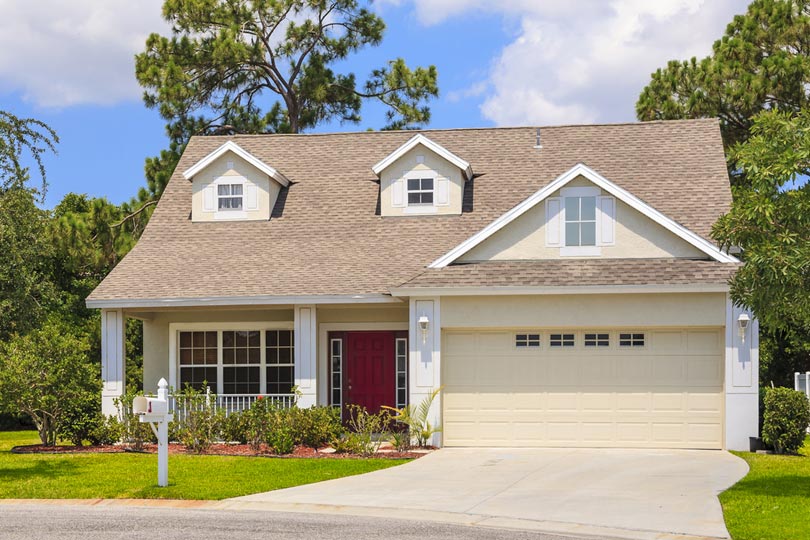Tips On Using Construction Loan Builders

No matter your loan type, the need for third parties, including builders, inspectors, and appraisers, is real. You likely won’t be allowed to act as your own builder, electrician, or plumber.
Screening these third-party services is important.
Some don’t screen these service providers as diligently as they should, and in such cases, it’s easy to fall prey to certain schemes, as we’ll examine below.
When A Contractor Contacts You
When you need a builder and have never hired one before, it’s easy to assume your experience is “industry standard.” Still, there are warning signs to pay attention to to avoid getting burned by an unscrupulous service provider.
Never respond to third parties that offer you their services unless you have contacted them first or had a referral made to them on your behalf.
Some homeowners get a knock on the door as an in-person attempt to reach you. A builder who “happens to be in the area” might not offer exactly what’s advertised. Beware.
When You’re Being Pressured To Decide
If a contractor tries to pressure you to make a quick decision, don’t use them. It’s not industry standard to fast-talk you into a decision you don’t have much time to consider. Never give into this kind of pressure, no matter if it’s for a “special deal” or not.
Does The Contractor Only Take Cash?
Run, do not walk away from a contractor who asks you to pay cash for any reason. Cash payments are not a typical part of a construction loan project.
The Builder Needs To Obtain Their Own Permits
Find another contractor if your contractor cannot obtain their permits or asks you to do this on their behalf. You don’t need to do their jobs for them, and unless the borrower is also the builder, obtaining permits is the contractor’s work. Not yours.
Leftover Materials From A Previous Job
Avoid a builder who wants to offer you a price break because, lucky for you, there is leftover material from another job site.
This is a common contractor scam you should not fall for. Don’t work with any builder who offers you an “under the table” arrangement of any kind.
Why? Because you have no recourse if the builder breaks your agreement.
Want More Information About One-Time Close Loans?
We have extensively researched the FHA (Federal Housing Administration) and the VA (Department of Veterans Affairs) One-Time Close Construction loan programs.
We have spoken directly to licensed lenders that originate these residential loan types in most states, and each company has supplied us with the guidelines for their products. We can connect you with mortgage loan officers who work for lenders who know the product well and have consistently provided quality service.
If you are interested in being contacted by a licensed lender in your area, please send responses to the questions below. All information is treated confidentially.
OneTimeClose.com provides information and connects consumers to qualified One-Time Close lenders to raise awareness about this loan product and to help consumers receive higher-quality service.
We are not paid for endorsing or recommending the lenders or loan originators and do not otherwise benefit from doing so. Consumers should shop for mortgage services and compare their options before agreeing to proceed.
Please note that investor guidelines for the FHA and VA One-Time Close Construction Program only allow for single-family dwellings (1 unit) – and NOT for multi-family units (no duplexes, triplexes or fourplexes).
In addition, the following homes/building styles are not allowed under these programs: Kit Homes, Barndominiums, Log Cabin Homes, Shipping Container Homes, Stilt Homes, Solar (only) or Wind Powered (only) Homes.
Please send your email request to [email protected] which authorizes OneTimeClose.com to share your personal information with one mortgage lender licensed in your area to contact you.
1. Send your first and last name, e-mail address, and contact telephone number.
2. Tell us the city and state of the proposed property.
3. Tell us your and/or the Co-borrower’s credit profile: Excellent – (680+), Good - (640-679), Fair – (620-639), or Poor- (Below 620). 620 is the minimum qualifying credit score for this product.
4. Are you or your spouse (Co-borrower) eligible veterans? If either of you is an eligible veteran, down payments as low as $0 may be available up to the maximum amount your debt-to-income ratio per VA will allow – there are no maximum loan amounts as per VA guidelines.
Most VA lenders will go up to $1,500,000 and review higher loan amounts on a case-by-case basis. If not, the FHA down payment is 3.5% up to the maximum FHA lending limit for your county.
Do you know what's on your credit report?
Learn what your score means.

July 26, 2024The Federal Housing Administration (FHA) offers qualifying borrowers the option to build a home from the ground up using a Single Close FHA Construction Loan. This program, also known as a One-Time Close construction mortgage, allows borrowers to finance the construction of a new home and convert it into a permanent mortgage with just one closing, streamlining the often complex process of building a house.
July 19, 2024VA One-Time Close construction loans help qualifying veterans build homes they will own and occupy once the construction phase is complete. One-time close loans, or construction-to-permanent loans, combine construction and permanent financing into a single closing procedure. VA One-Time Close mortgages have no VA-required down payment or mortgage insurance, making them attractive options for qualifying borrowers.
July 12, 2024When planning a construction loan, you have many options. For example, do you want to buy land with a loan to build the house? Or do you already own a parcel suitable for the construction project? There are many other choices to make with home loans, but some don’t necessarily apply to construction mortgages.








